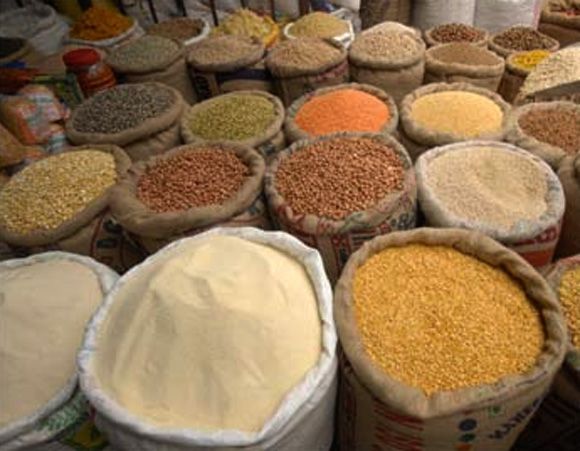Food ministry is needlessly wary of reforms
 The report of the Shanta Kumar committee on food management contains several cogent recommendations and these have been submitted to the Prime Minister’s Office.
The report of the Shanta Kumar committee on food management contains several cogent recommendations and these have been submitted to the Prime Minister’s Office.
But it is increasingly unlikely that the report will be accepted in full. In its comments on the report, the Union food ministry has either turned down or expressed reservations on the implementation of many of the reforms-oriented suggestions.
Some of these suggestions are: reducing the number of people covered under the food security law from 67 per cent to 40 per cent of the population; expediting the direct cash transfer of food subsidy to the beneficiaries; and the lowering of mandi taxes on foodgrain to a uniform three to four per cent in all states.
In addition, the ministry is non-committal on the suggested downsizing of the unwieldy Food Corporation of India by outsourcing its key functions to the states or to the private sector.
That is also true for the recommendation that the FCI shift the focus of its grain procurement (read price support) operations from the glut-ridden north-western states to those in the east, which lack adequate marketing facilities.
Thus, for all practical purposes, only the measures that had already been initiated prior to the submission of the report are proposed to be pursued.
Though the mooted deregulation of urea prices and delivering fertiliser subsidy to the farmers in cash do not fall within the domain of the food ministry, indications are that even this sane counsel is unlikely to be accepted by the government.
Limiting benefits under the food security law to 40 per cent of the population -- a suggestion that has been rejected outright -- makes sense.
The committee reckons that this would be sufficient to reach out to all those below the poverty line and, in fact, some others as well.
This could help the government save around Rs 30,000 crore (Rs 300 billion) in food subsidy, easing pressure on fiscal management.
The surprising part is that though the ministry concedes that cash transfer of subsidy is a better mechanism than delivering food in kind, yet it is apprehensive of implementing it -- except on a pilot basis in two Union territories of Puducherry and Chandigarh.
It is believed to have expressed concern about what would happen to the grain procured by the government agencies if the subsidy is delivered in cash.
But the implementation of the report’s full package of measures -- including reduced procurement and regular disposal of the procured grain in the market -- would automatically stop the accumulation of excessive stock.
It would also keep food prices stable all year round.
The food ministry’s announcement that the FCI would stop buying wheat and rice in Haryana from this year and in Punjab from next year does not indeed mean much.
The FCI’s share in grain procurement in these states is already no more than 10 per cent to 12 per cent, with the rest being mopped up by the state agencies.
In most other grain-surplus states, too, a sizable part of the marketed grains are bought by the local agencies under the decentralised grain procurement scheme that began over a decade ago.
Thus, on the whole, the food ministry seems to be needlessly wary of change that is imperative to revamp the food management system.
It is now for the PMO to intervene to take the process of food sector reforms forward.










 © 2025
© 2025